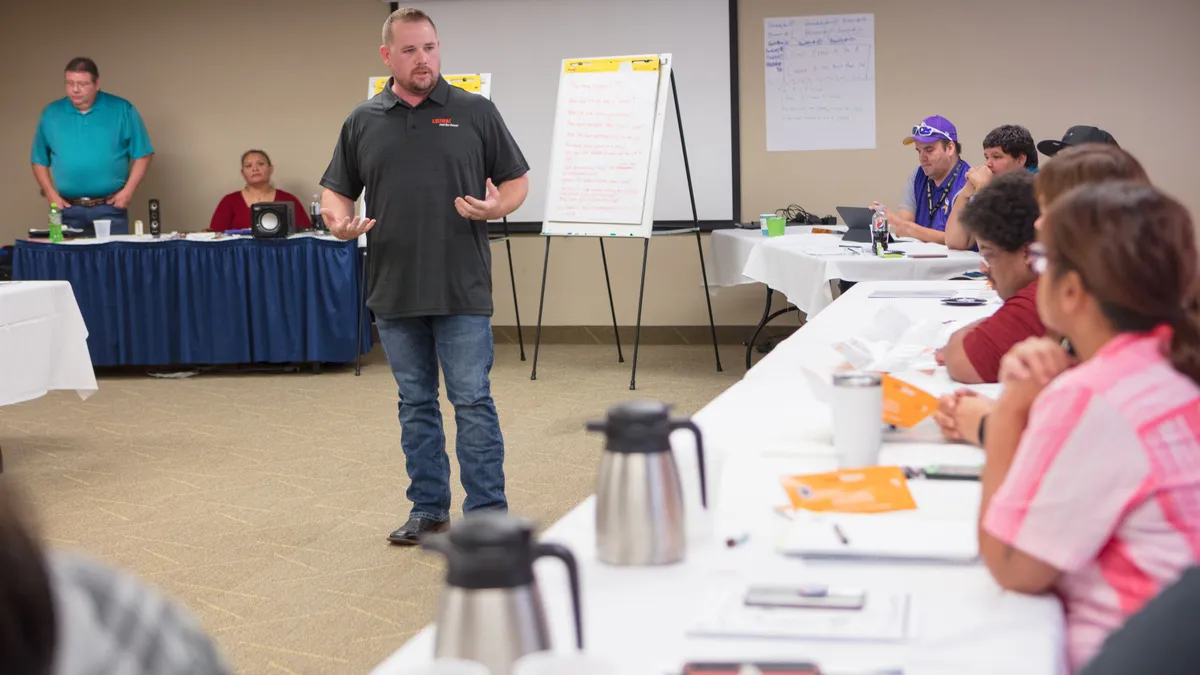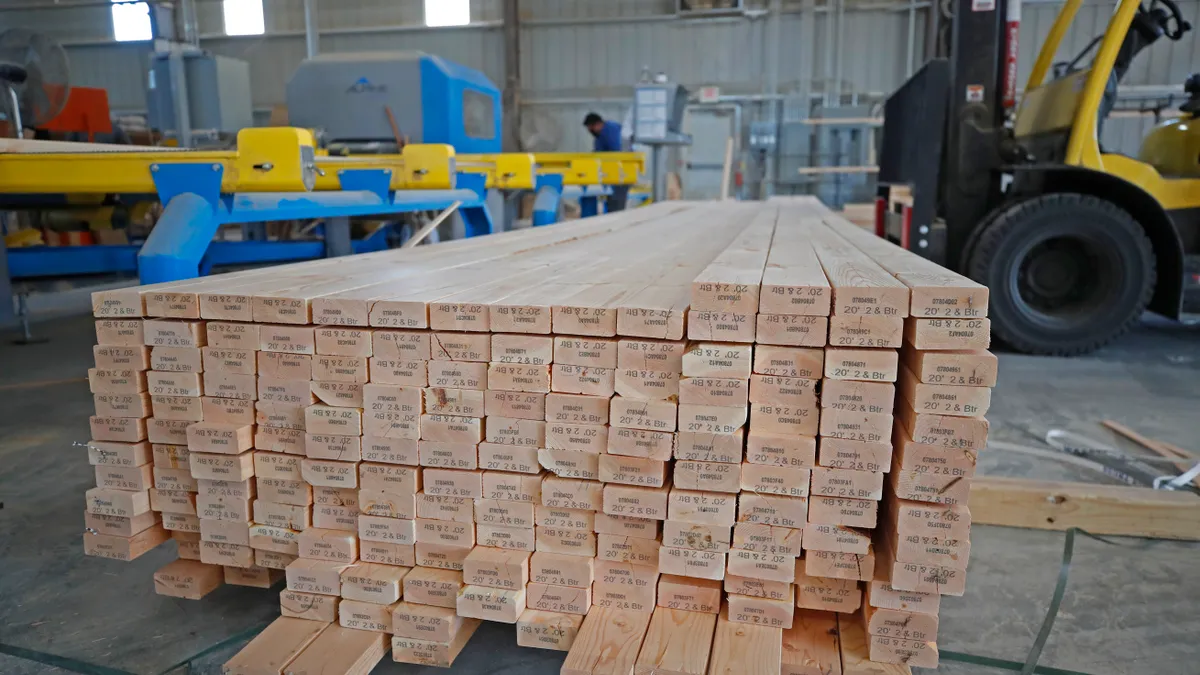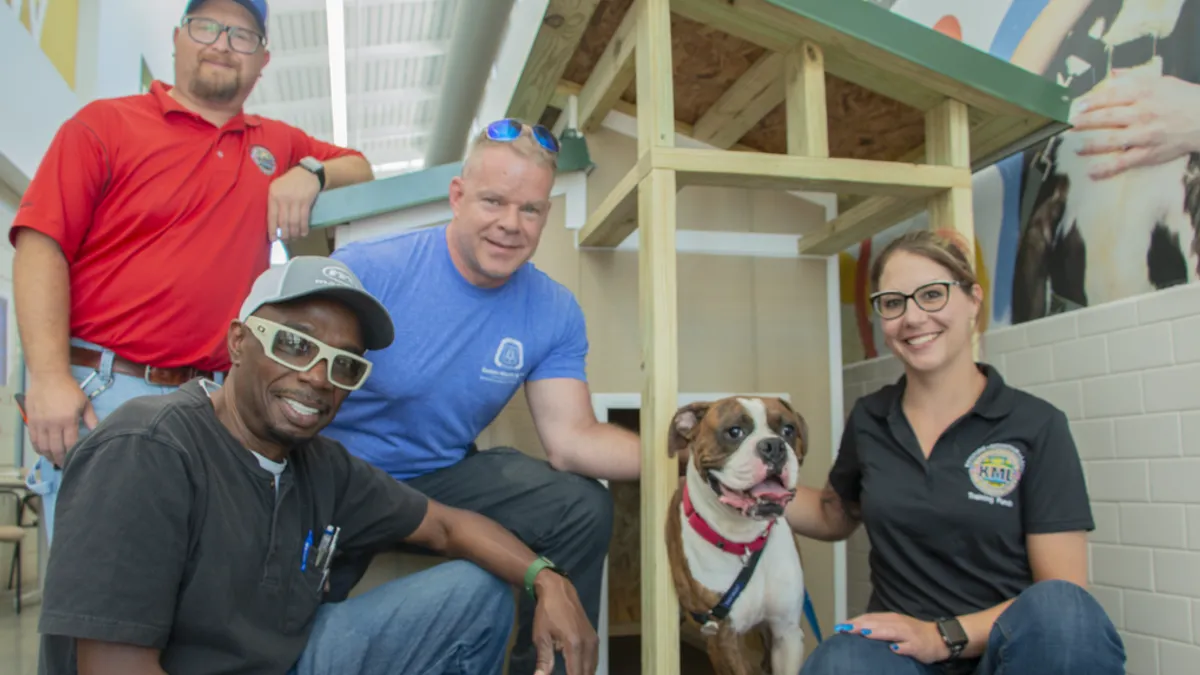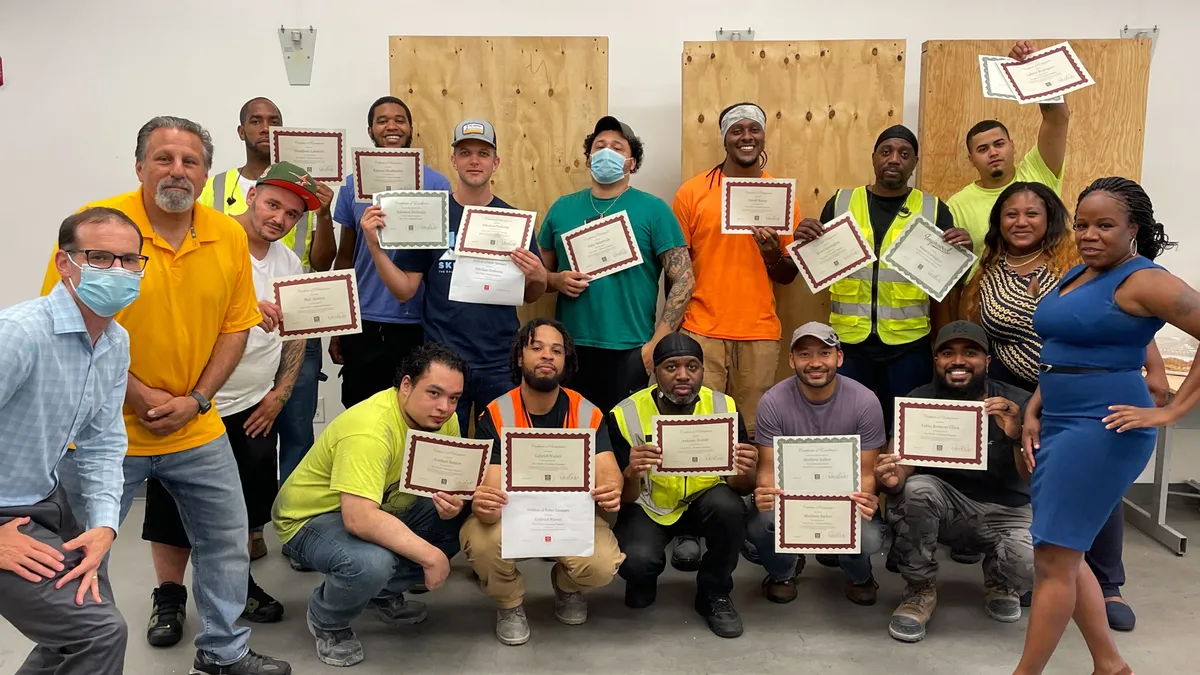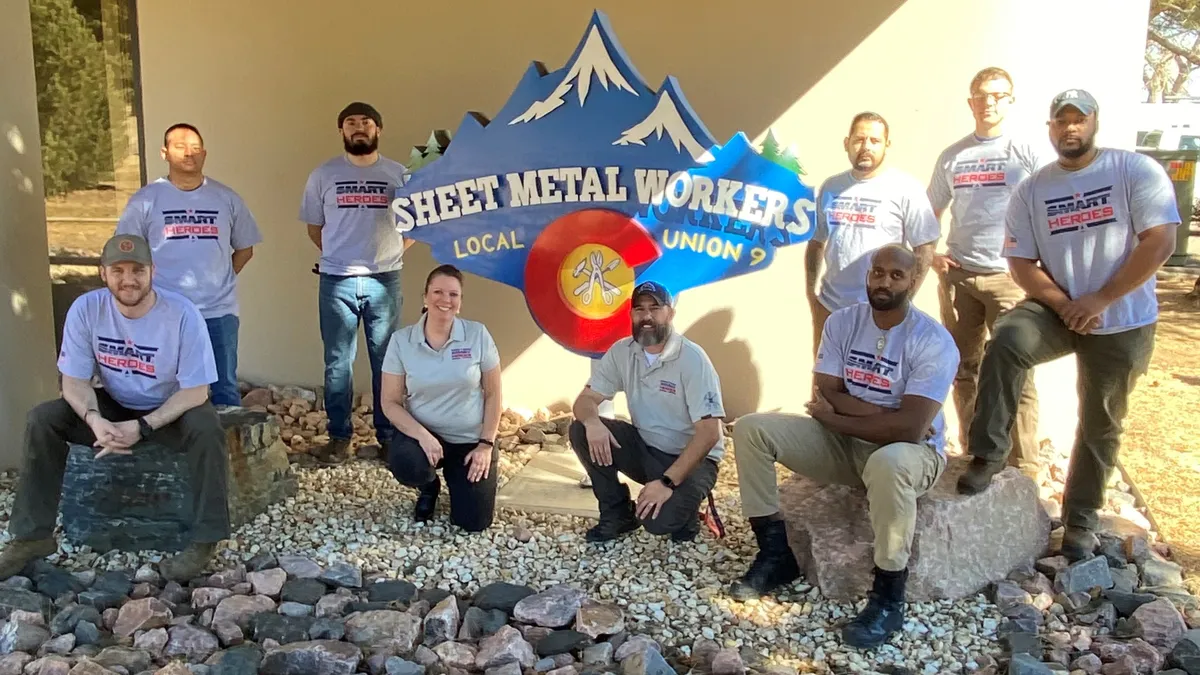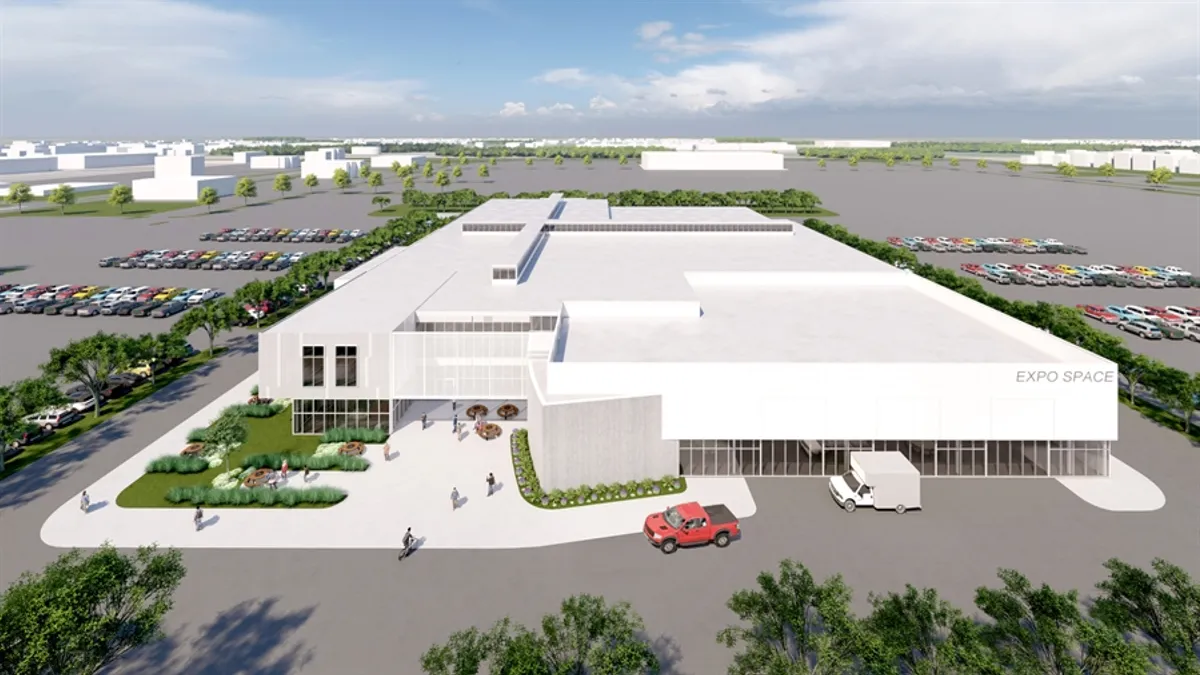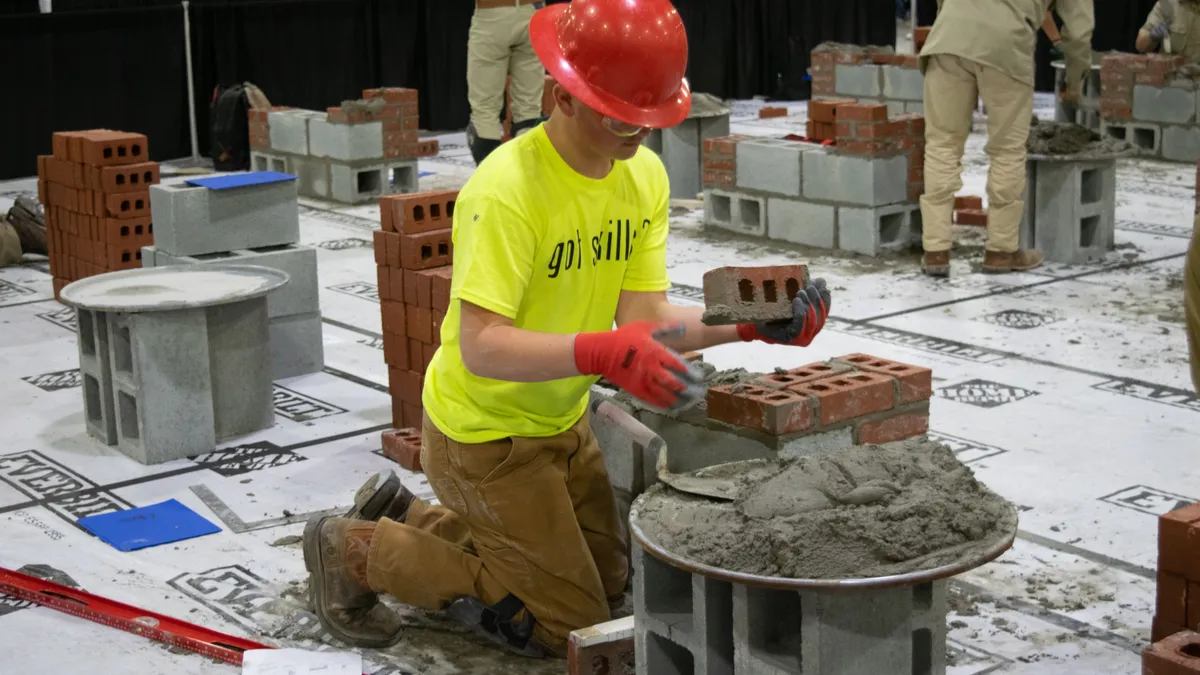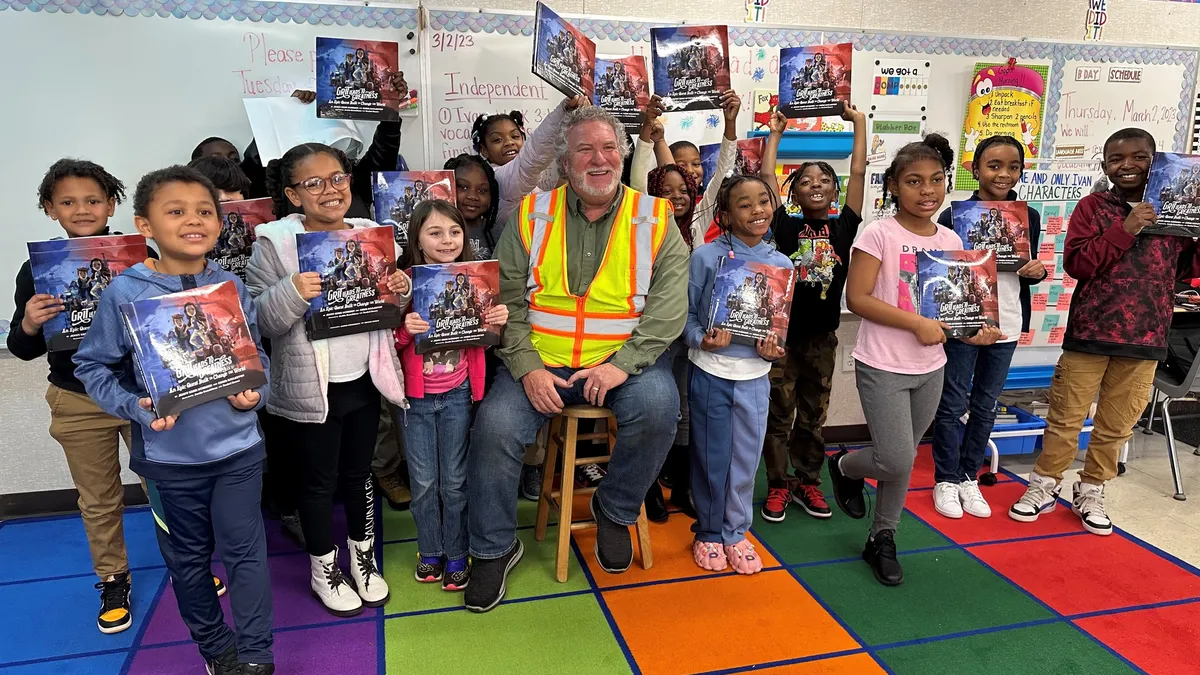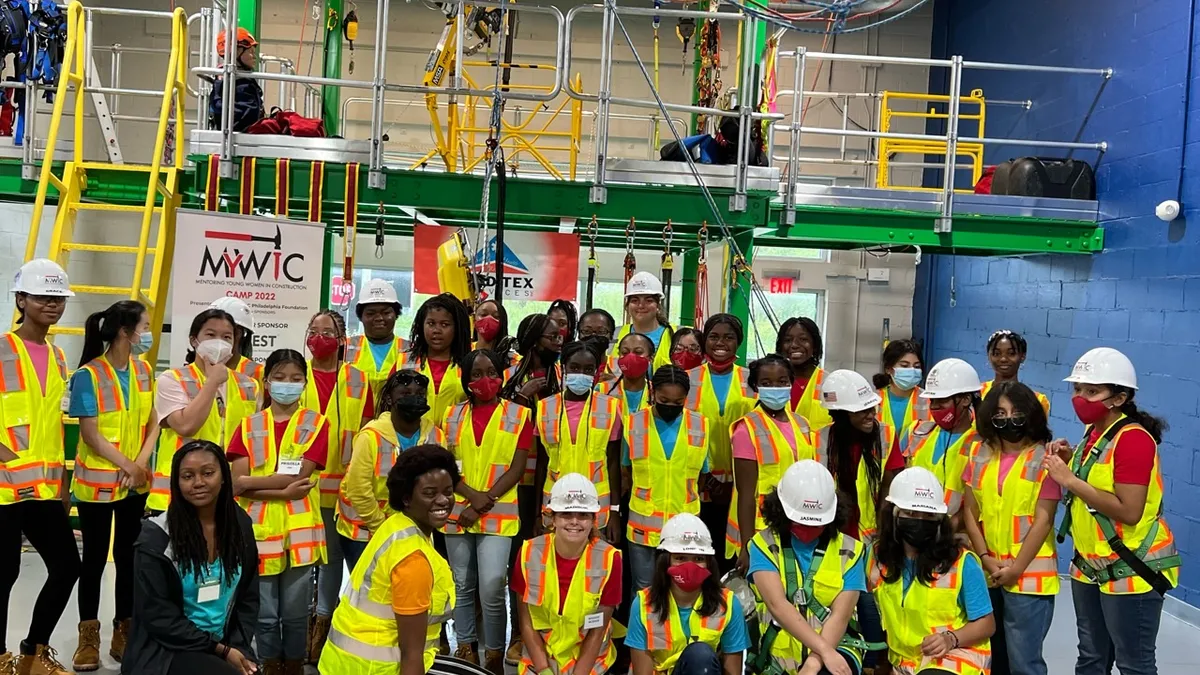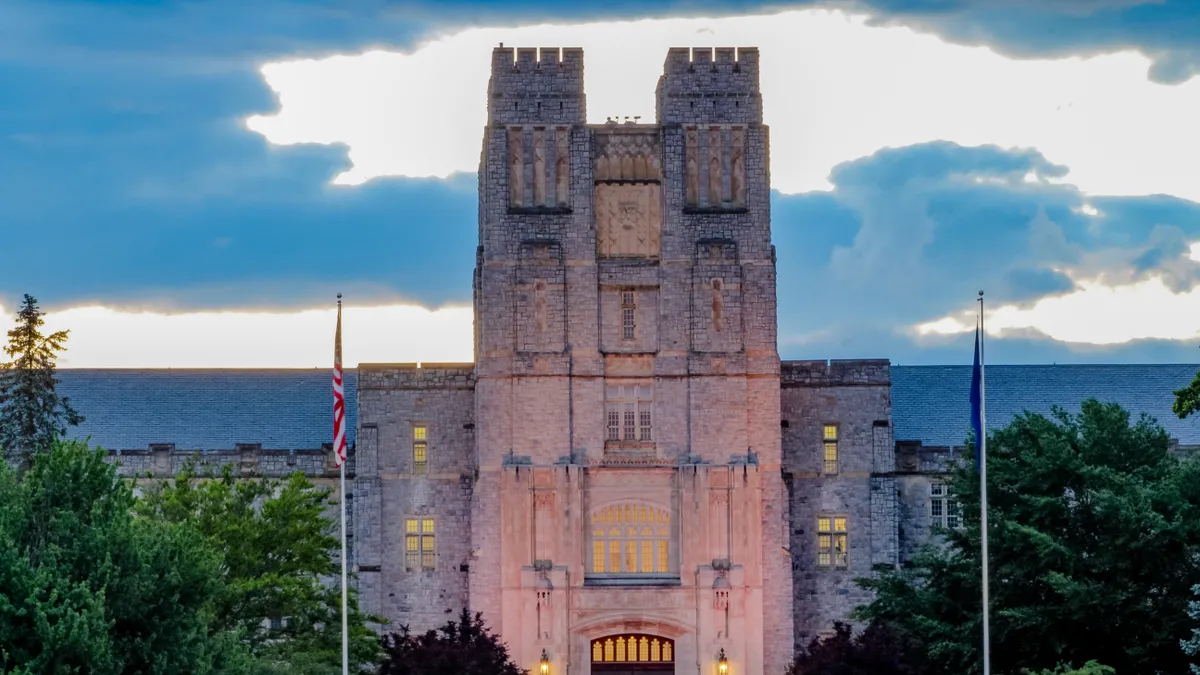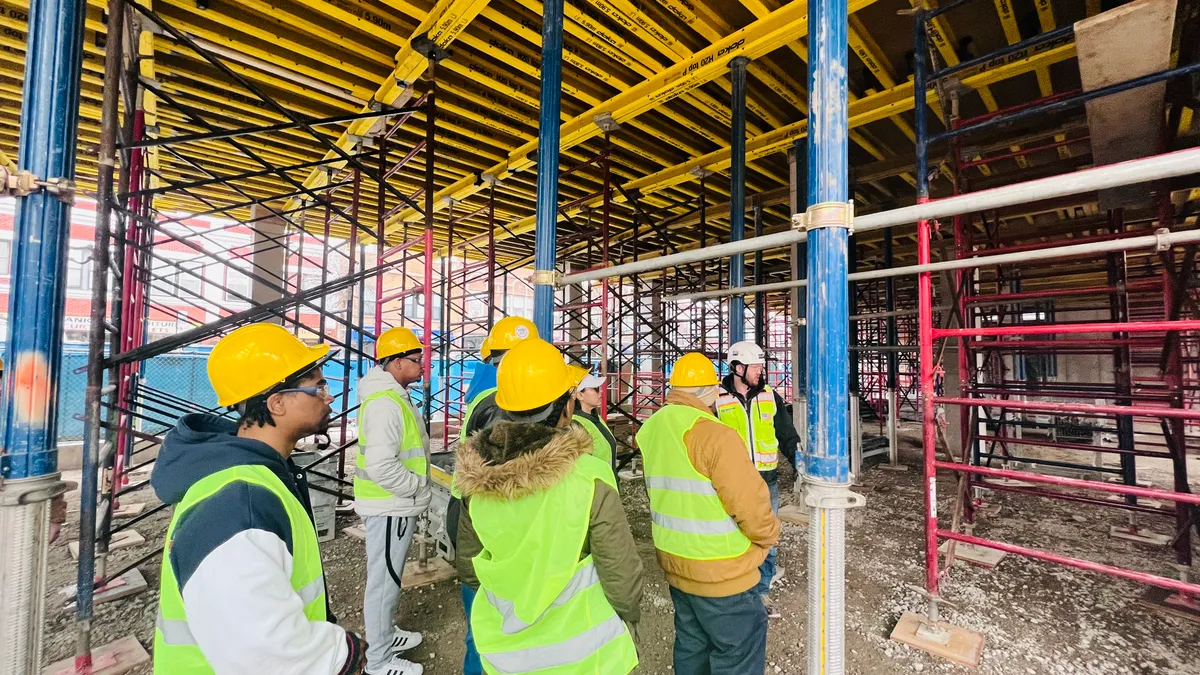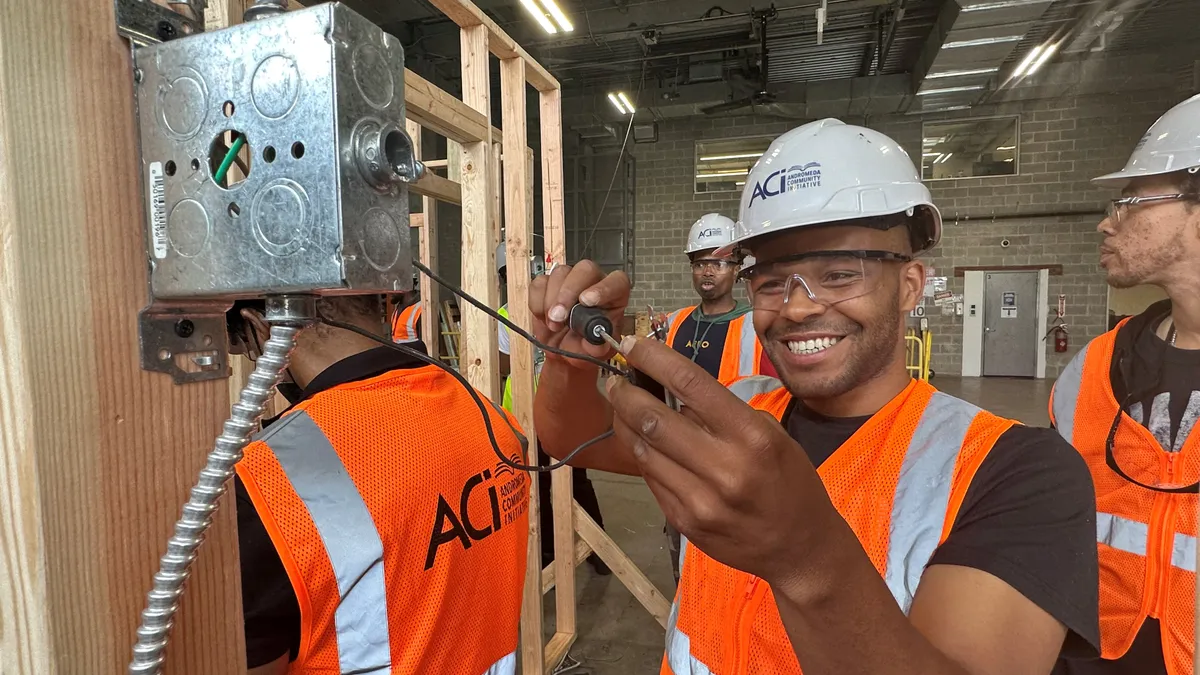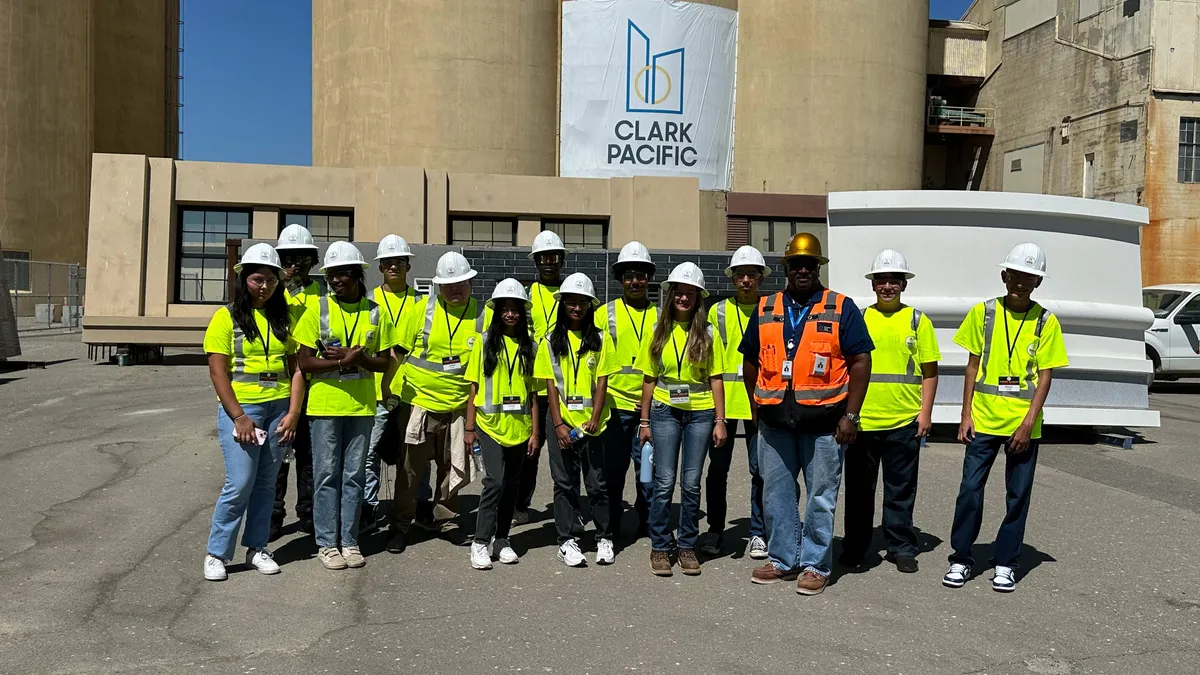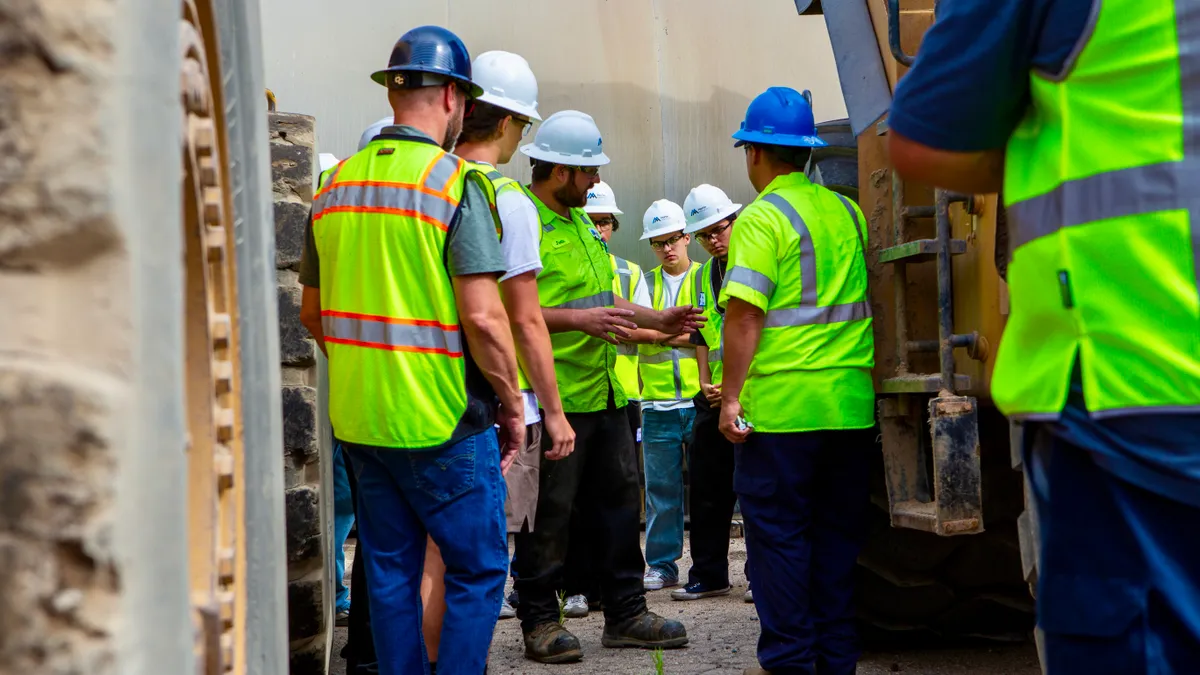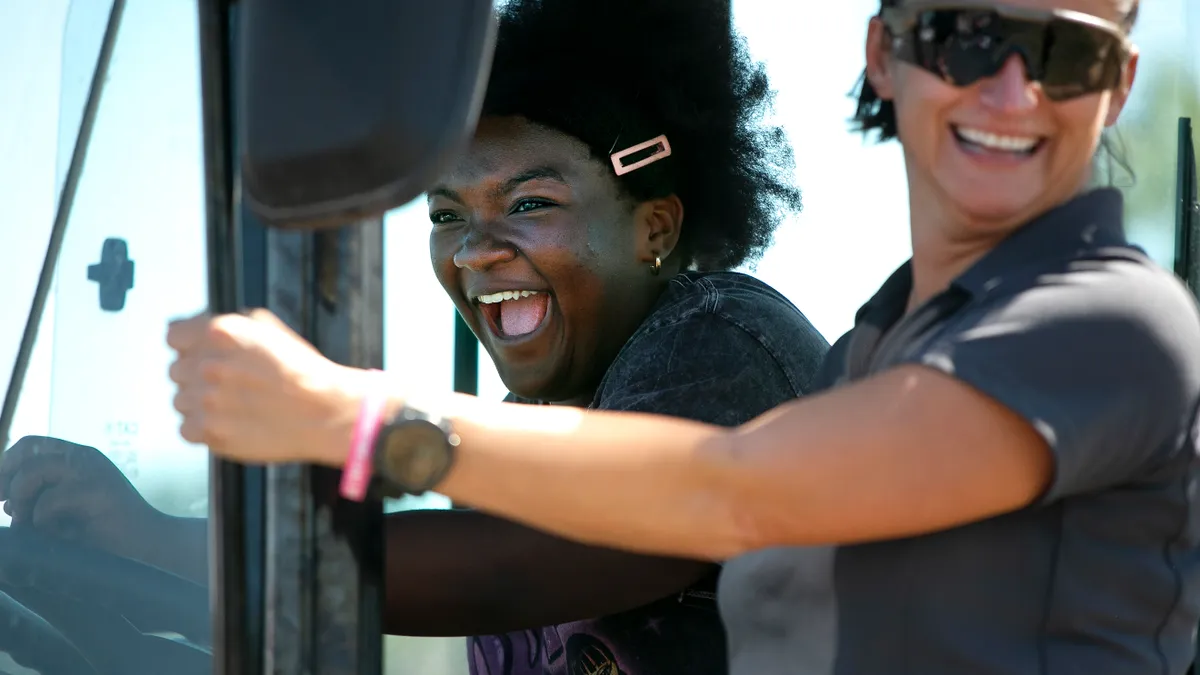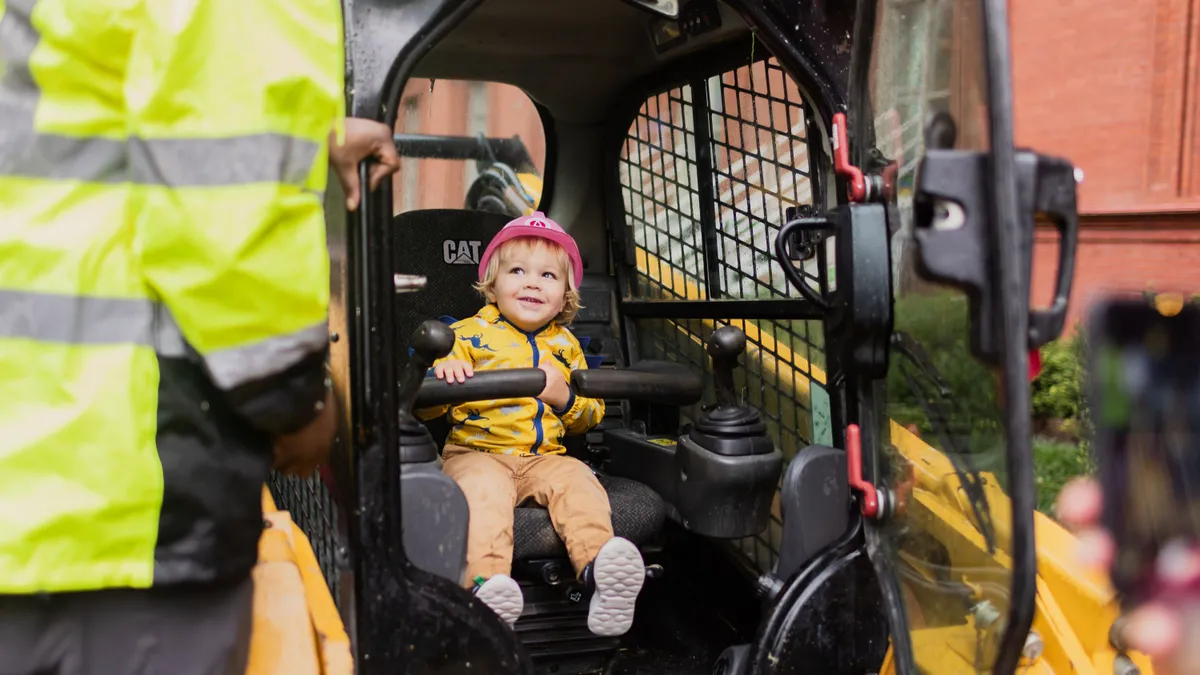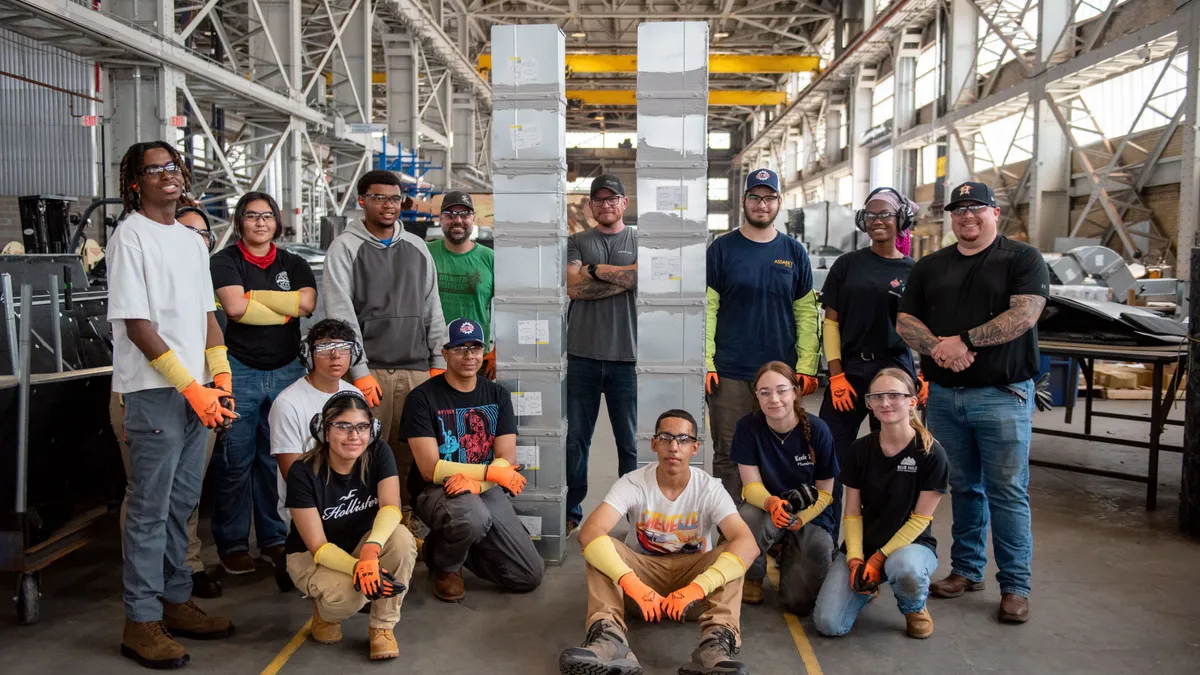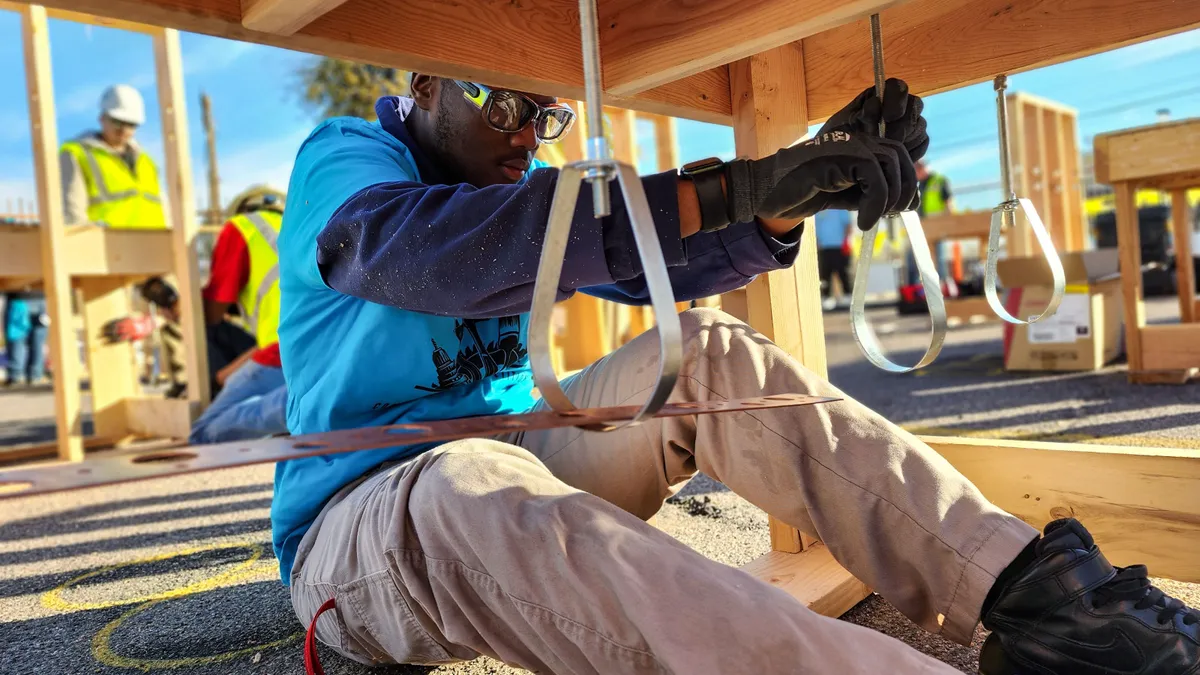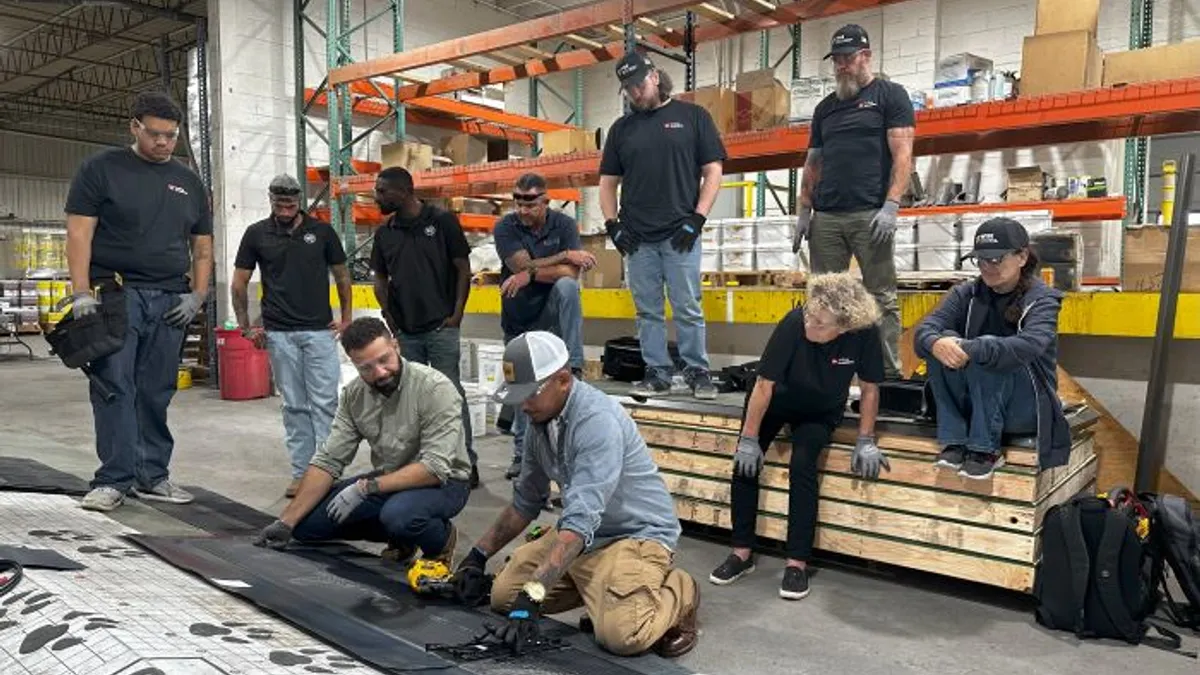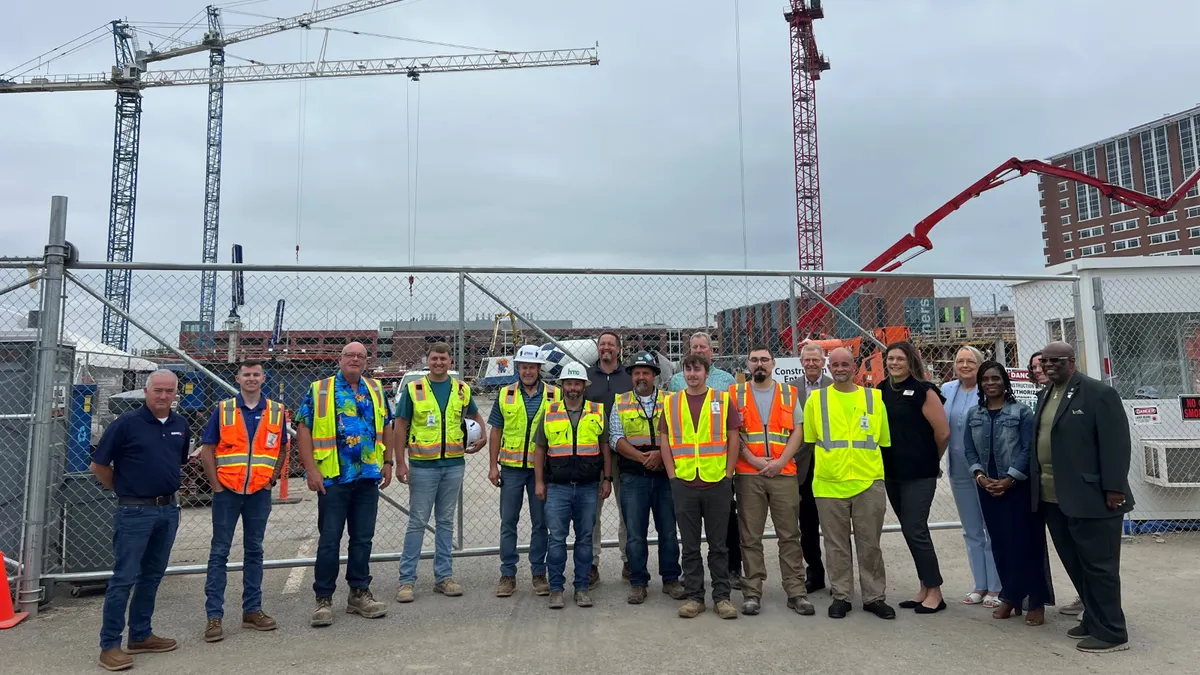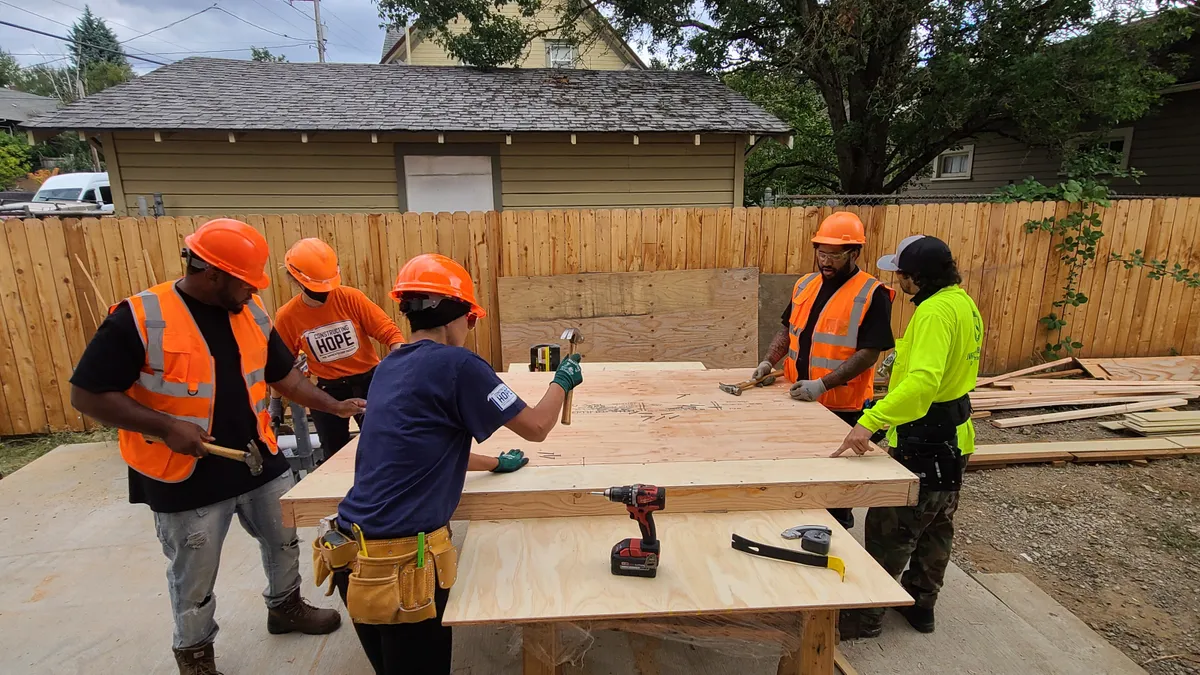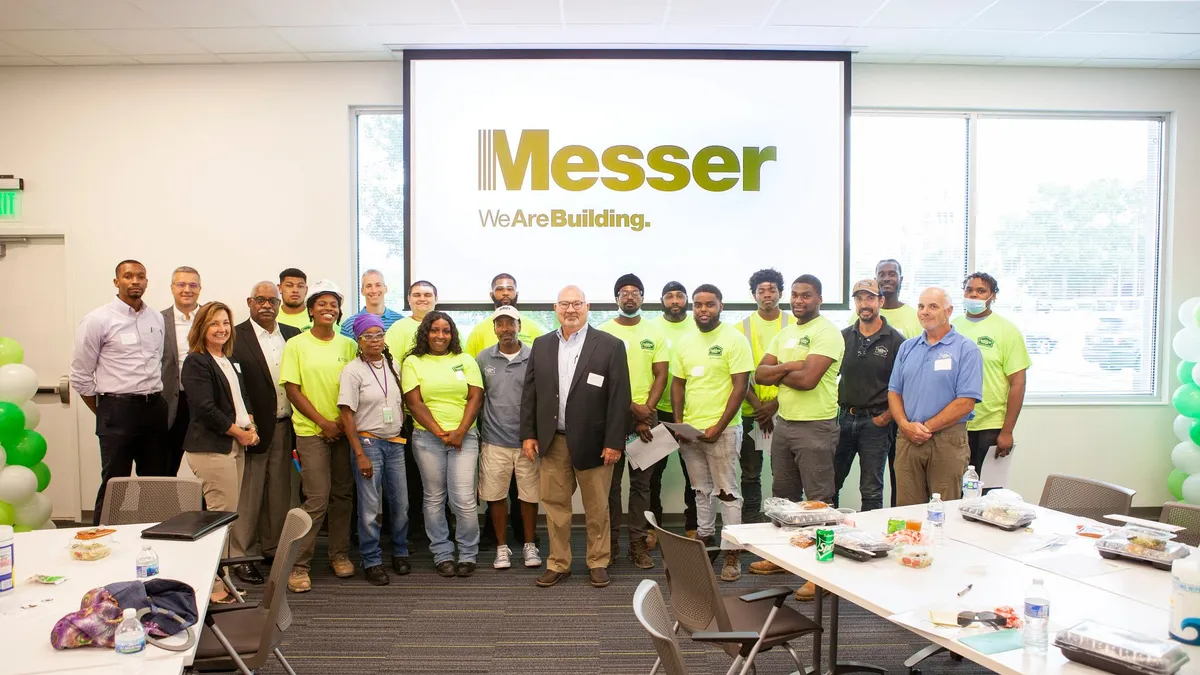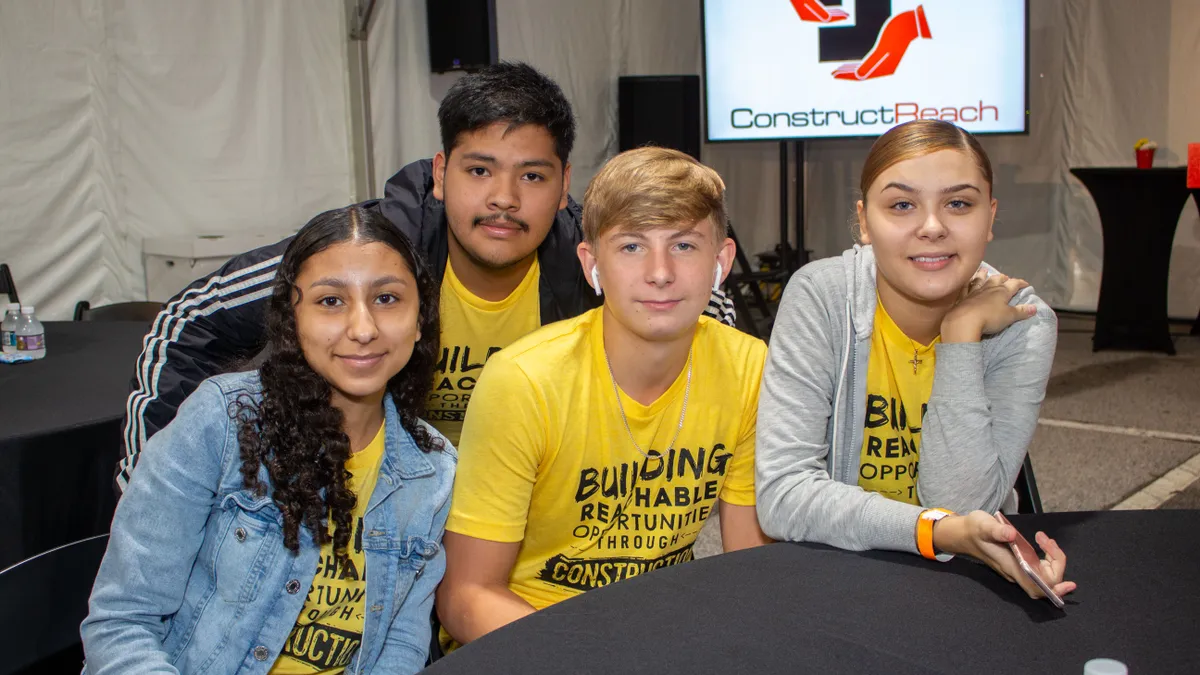The construction industry faces a stark shortage of workers, but programs and people across the country are working at the local level to solve the problem. This series highlights the grassroots efforts helping to recruit the next generation of construction pros. Read previous entries here.
Do you know of a group that is helping to attract workers to the construction industry? Let us know.
While working for the Tribal Employment Rights Office for the Ho-Chunk Nation in Wisconsin, Nicholas Kedrowski found limited success in helping Native American workers find long-term employment in the construction trades outside of the reservation.
Even with the proper training and a good job lined up, workers were reluctant to leave their communities for long, he told Construction Dive.
“What we kind of figured out was they brought their own barriers, they created their own roadblocks to success,” said Kedrowski, co-founder and managing director of Lake Elmo, Minnesota-based Five Skies Training and Consulting.
A Native-owned small business, Five Skies specializes in providing workforce training tailored to opportunities in or near Native reservations. For example, Five Skies partnered with Enbridge’s Line 3 pipeline project in Minnesota, focusing on creating opportunities for Native communities and developing a more diverse workforce on the project.
From August 2019 to February of this year, 200 people completed Five Skies’ training across 20 classes for the Line 3 work, leading some to land union memberships and jobs for contractors working on parts of the Line 3 replacement.
The controversial pipeline has drawn workers to job opportunities but also has faced ire and protests for its environmental impact on Native lands.
Many who found a job from Five Skies have now moved on to work on new projects as a result of the training, according to the company.
Career education
Five Skies works with students at multiple stages in their lives, some just pursuing their first career, others looking for a new start.
“We can provide training for pretty much anyone, but we like to focus on Natives, veterans, women and minorities,” Kedrowski said.
He described the Five Skies’ four-week-long empowerment program as workforce readiness and career enhancement training. But the point isn’t necessarily to have them 100% jobsite ready, though Five Skies often brings in OSHA 30 or CPR training if it’s called for.
Skills are project-focused, but the overall intent is on career training.
“We can’t teach them to be a [heavy equipment] operator,” said Kedrowski. “We try to get them as prepared as possible as a person.”
“We start out working on self,” said Nyree Kedrowski, Five Skies co-founder and Nicholas’ wife, in a video promoting the company. “[The] first component is [called] mending Broken Hearts. So we deal with a lot of intergenerational trauma, grief, loss, and ‘Here’s the tools we’re going to give you to help you get through that.’”
Kenny Budreau had experience working in the trades as a tile cutter. A recent graduate of Five Skies, he said the Mending Broken Hearts helped him deal with his past struggles.
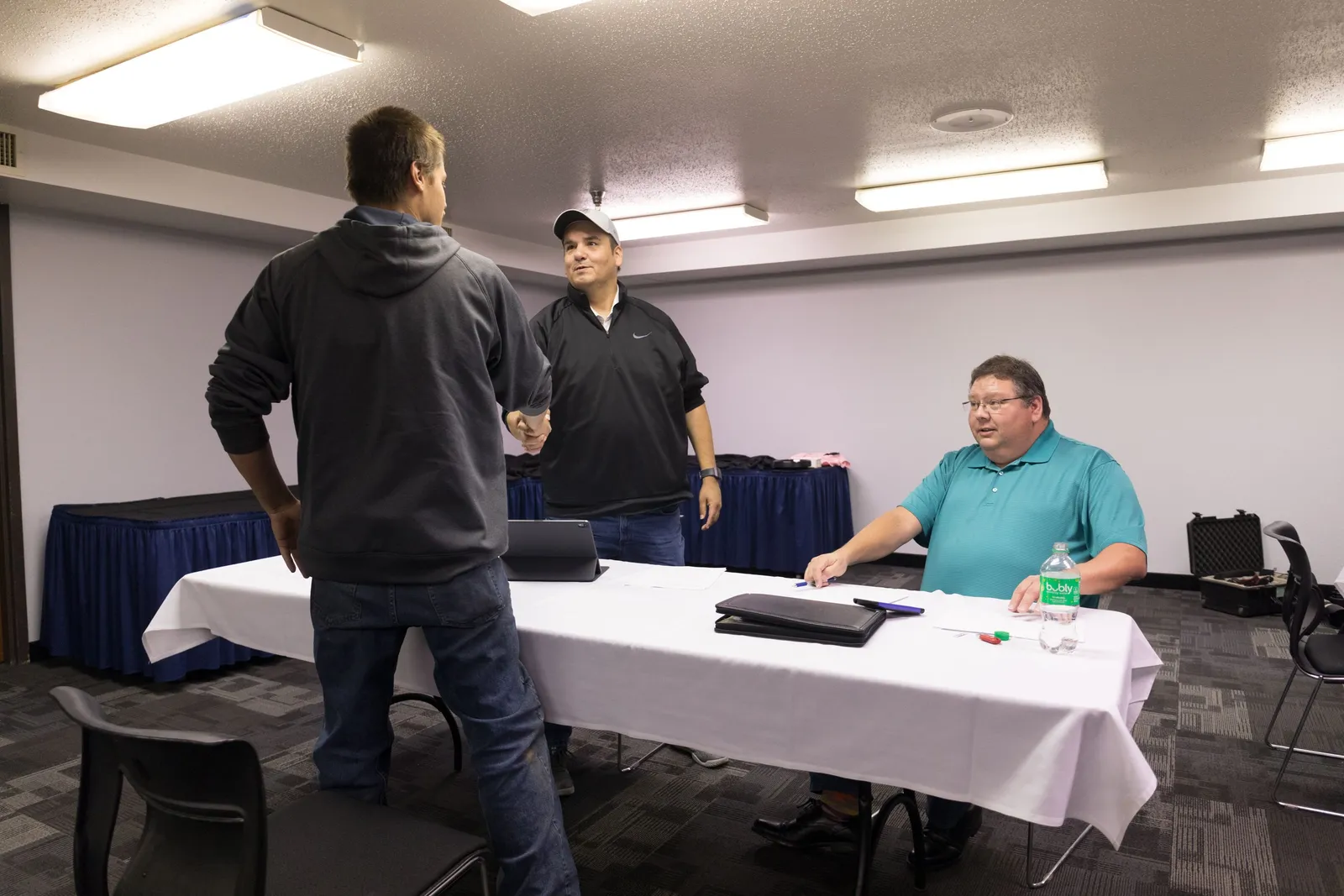
“There were times in my life where I wasn’t the best man for the job,” Budreau told Construction Dive. He took his classes with other members of the Leech Lake Band of Ojibwe in Cass Lake, Minnesota.
Budreau currently works as a host at a restaurant. He’s waiting for the construction season to start, where he expects to be called to the jobsite in the Duluth, Minnesota, area as a laborer.
Setting expectations
The class includes a pre-training drug screen, which the Kedrowskis said is important, as some contractors will conduct those screens themselves. Doing so in the class helps set expectations. From there, the class goes into lessons in topics like financial literacy.
Construction trades jobs often have layoff periods, which is easier to endure when workers plan for it.
“We want to make sure our graduates are fully prepared not only to pass that but they’re aware of the expectations as well,” Nicholas Kedrowski said.
Nyree Kedrowksi said employers and unions for projects often speak to the class, which is vital to workers knowing and understanding the work.
“Because they’re the experts in the field, we wanted to give them the eyes wide open to see ‘Oh, that’s what that looks like,’” she told Construction Dive.
Cultural shift
Nicholas Kedrowski said he believes part of why it can be tough for Native Americans who live on reservations to move to other areas for work is that they feel judgment from their families and community.
“What we are learning is that it’s a lack of understanding,” he said. “Usually the argument that’s presented as ‘Oh are you too good for us?’”
But he likened it to hunting, as a means to provide.
“Even just mentioning that, you’ll see the light bulbs go off, that this is the same,” he said. “It’s the same as bringing the food and resources back. You may have to go elsewhere to do that, but you’re not turning your back on your community.”
From there, Nyree Kedrowski said, developing a sense of pride and accomplishment can seal the deal.
“It’s important to them and their families to say ‘Look, I built that over there.’”



